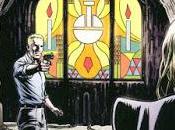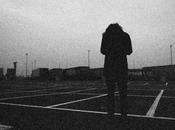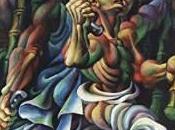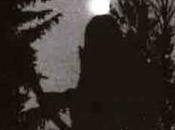 My interview with horror legend Ramsey Campbell:
My interview with horror legend Ramsey Campbell: [Alessandro Manzetti] In this period there is much talk about the end of the world, the Apocalypse. Lovecraft, among modern writers, is certainly the father of all the apocalypses. Which is the first Lovecraft’ story you read (and when)? How do you imagine a possible end of the world?
The very first I remember reading was quite possibly his greatest – “The Colour out of Space”. I believe I was no more than seven years old. Certainly I read it in Groff Conklin’s “Strange Travels in Science Fiction” (1953), which I borrowed from the local library – my mother was already letting me use her tickets to borrow adult books. I found the story so disturbing that I was afraid my mother would see I was reading a tale clearly too transgressive for me at that age (a feeling I’d never previously had). Despite my age, I was aware of all the subtleties; for instance, I knew all too well why Ammi picked up that stick in the farmhouse. After that I came across a few minor Lovecraft tales in science fiction anthologies by August Derleth, but it wasn’t until I was fourteen that I came upon Lovecraft’s first British paperback collection, Cry Horror.
The end of the world – I envisage entropy of one sort or another. We shall all become less than the memory of dust – everyone living and everyone yet to be born. The sun will die out, and the stars, and the darkness will return to its ancient dreams.
[Alessandro Manzetti] The writer’s imagination, which expands evolving throughout his life, how much is it tied to the personal experiences, to the adolescence dizziness and family dynamics, and how much as due to the literary education? [Ramsey Campbell] All of those, I should think. I began writing in order to try and pay back some of the pleasure the field had given me (specifically Lovecraft’s work in my first book). Having tried to replicate his terrors I set about trying to represent my own (sometimes unconsciously: for instance, I didn’t know how autobiographical “The Chimney” was until long after I’d written it – perhaps at that stage I had to be unaware of the theme to write objectively about it). But reading other writers – Fritz Leiber for the development of contemporary urban supernatural horror, Graham Greene for incisive social observation – certainly helped me to develop.
[Alessandro Manzetti] You are considered as a fantastic fiction master, do you think this genre is like an ideal door to a parallel world, which allows the reader to escape, for a few pages, their own reality, or rather it is a journey into the past, in the most ancestral emotions that are hidden within us as indestructible fossils?
[Ramsey Campbell] I suppose all art is an escape in a sense, insofar as we’re temporarily leaving our own experience to share someone else’s, however disturbing or harrowing it may be. I like your fossil image! I’m sure there’s some of that too, whether the emotion is disquiet or terror or transcendent awe. But I also think some of my tales may intersect with the reader’s personal experience and perhaps illuminate it in a fresh way – that’s one of my ambitions, anyway, to make us (the reader while reading and me while writing) look again at things that may seem familiar.
 [Alessandro Manzetti] The Doll Who Ate His Mother (1976) is your first novel, set in Liverpool, where you were born. Your style is now very far from your first stories inspired by Lovecraft's fiction. In this work you write about a distorted reality, deforming, urban decay, reminiscent of Fritz Leiber’s atmospheres. Have you been inspired by your mother's schizophrenia and by the observation of the dark places of your city, were you lived as a child?
[Alessandro Manzetti] The Doll Who Ate His Mother (1976) is your first novel, set in Liverpool, where you were born. Your style is now very far from your first stories inspired by Lovecraft's fiction. In this work you write about a distorted reality, deforming, urban decay, reminiscent of Fritz Leiber’s atmospheres. Have you been inspired by your mother's schizophrenia and by the observation of the dark places of your city, were you lived as a child?[Ramsey Campbell] The city was certainly an inspiration. I’d grown up with the kind of urban decay in which the finale of The Doll takes place. To be more specific, in my mid-teens I’d walk through blitzed areas very much like that on my way to catch films at suburban cinemas, themselves soon to be closed and maybe demolished. It was a real adventure; I was learning about the city where I’d been born, which had seemed immense to me when younger – in fact it still did. By the way, I very much liked Steve King’s observation in Danse Macabre that the slumbering monster in The Doll was to some extent that area of Liverpool. I think my mother’s schizophrenia – more precisely, my very early realisation at three years old that reality wasn’t always as she saw it – made me concerned with how perceptions misrepresent things. It was really in my second novel – The Face That Must Die – that I began to address these psychological states explicitly. [Alessandro Manzetti] In your fiction horror always mixes with a portrait of English society; do the "ghosts", the “monsters” that you evoke in your works represent the dreams, the fears, the utopias of the middle class of your country? Do you think that the horror fiction, describing the social issues, and becoming a beautiful metaphor, is fully understood by the readers? I would also refer to some works of other great writers, such as Stephen King and his famous novel The Shining, in which the author, between the lines, suggests a warped vision and interpretation of alcoholism. [Ramsey Campbell] There’s certainly a lot of social comment and observation in some of my tales, and the ghosts and other uncanny manifestations often represent something the characters who encounter them have denied about themselves or don’t realise. However, I think this often works best when even I don’t fully understand this while I’m writing – it may become apparent to me later on. I’m an instinctive writer and work with whatever engages my imagination, and I’m happy to trust the underlying metaphors to look after themselves while I tell the tale.
 [Alessandro Manzetti] Which of your fiction books would you recommend to those who haven’t read any of your works yet? Could you tell us the story of this book, in a nutshell, and the hidden messages that we might find inside?
[Alessandro Manzetti] Which of your fiction books would you recommend to those who haven’t read any of your works yet? Could you tell us the story of this book, in a nutshell, and the hidden messages that we might find inside?[Ramsey Campbell] Two if I may – a novella and a novel. The novella is Needing Ghosts, writing which was more like dreaming directly onto the page than anything else I’ve written. A few pages in I found the tale wanted to take its own very strange journey, and I was happy to follow – in fact I was coming up here to my workroom every day in order to find out what happened next. I think it’s the first story where my taste for nightmare humour really declared itself. It tells of a day in the life (if that’s what it is) of Simon Mottershead, whose experience becomes more uncontrollable the further he travels from home. The novel is The Grin of the Dark, about the lost films of a forgotten silent comedian whose work had a disturbing effect on his audiences. Our protagonist Simon Lester rediscovers his work and lets the influence it represents back into the world. The Internet is very much involved, and among other things it’s a novel about the net as a new or extra form of human consciousness. It develops my particular thing – comedy of paranoia – further. The British paperback can be used as a flicker book – look at the chapter titles at the right-hand corner. As for hidden messages, I think I must leave those to the reader to find. Some of them may not be apparent to me, and some may well be unconscious on my part, which doesn’t mean they aren’t there. [Alessandro Manzetti] In a recent interview for Weird Fiction Review, I read that you learned from Lovecraft the intensity and the orchestration of prose, from MR James the art of moderation, you discovered from Leiber the sprawling connections between urban and spectral psychology, then you talked about other influences such as Machen, Blackwood, Graham Greene, and finally Nabokov, who made you discover the joy of language. Can you explain us what you mean by joy of language? [Ramsey Campbell] He put it best himself, recommending the reader to taste the prose like wine.
 [Alessandro Manzetti] Can you tell us about when you first met August Derleth, your first publisher?
[Alessandro Manzetti] Can you tell us about when you first met August Derleth, your first publisher?[Ramsey Campbell] I never met him – I wish I had. I did visit Arkham House, several years after his death. At the beginning of the 1960s I wrote a handful of stories imitating Lovecraft as closely as I could. My friend Pat Kearney, the British fanzine editor and later historian of the Olympia Press, and the American fan Betty Kujawa suggested I should send them to Derleth for his opinion. I don’t think I expected more than that – certainly not that he would offer to publish them if I applied the detailed editorial suggestions he provided. I was even luckier to get such editing at the start of my career than I was to be published. I’d imitated Lovecraft’s occasional stylistic excesses without taking anything like his care with structure; I’d even set the tales in Massachusetts when I’d never been out of England. I rid myself of all that to my and the world’s considerable benefit, and was rewarded when Derleth bought a tale for a new Arkham anthology (Dark of Mind, Dark of Heart, a title that dropped its prepositions prior to publication). Two years later, though he was (understandably) not entirely satisfied with it, he published my first book.
It was a dream come true. I’d begun collecting Arkham House books at the age of fourteen, when I found a copy of Witch House in a Liverpool book dealer’s. Anything Arkham published had a special magic for me. Even titles did: I remember finding titles in the catalogue so evocative that they had a vivid presence apart from the book – The Abominations of Yondo, for instance, or The Shuttered Room – or the short story, such as “The Thing That Walked on the Wind”. In the early seventies I had amassed almost a complete Arkham collection, except for the very early titles (Someone in the Dark excepted) and that horribly rare Leah Bodine Drake. Alas, I sold nearly all the books to buy my first house with my wife. The House on the Borderland was the one I couldn’t bear to part with.
[Alessandro Manzetti] In readings and meetings you present yourself with these words: "I am Ramsey Campbell and I write horror." I read this on your website, where you also write that other writers try to hide that they had made success with horror fiction, and then they have changed writing genre. And you say so with great determination. What is the horror for you and what are the possible scenarios and prospects for this genre? Is it really important, after all, to talk about genres in literature, and give labels to it? [Ramsey Campbell] I think we can indeed do without generic labelling. To some extent it has been a marketing device used by publishers and booksellers. When I was visiting the public library in my youth the books weren’t separated into fiction categories on the shelves, and I enjoyed coming unexpectedly upon examples of the fantastic.
As for what horror is – well, here’s what I wrote years ago, and I don’t disagree with it now:
Horror fiction is the branch of literature most often concerned with going too far. It is the least escapist form of fantasy. It shows us sights we would ordinarily look away from or reminds us of insights we might prefer not to admit we have. It makes us intimate with people we would cross the street to avoid. It shows us the monstrous and perhaps reveals that we are looking in a mirror. It tells us we are right to be afraid, or that we aren’t afraid enough. It also frequently embraces, or at least is conterminous with, the ghost story. It flourishes here and there in the fields of science fiction and crime fiction, and not infrequently it bobs up in the mainstream, whatever that is. Despite its name, it is often most concerned to produce awe and terror in its audience, but it is not unusual for a horror story to encompass a wider emotional range.
 [Alessandro Manzetti] In your works you often reveal us the hidden main character, the unconscious. Returning for a moment to the writing genre labels, as great investigator of the unconscious, as for me you may sit in a virtual table with Andre Breton and the surrealists of the thirties. In your short stories this alchemical mutation of the unconscious succeeds even better, more than in the novels. I refer to, for example, to your great short stories collection Alone with the Horrors, where we find stories declined into the daily; the moods and the human psychology are always under your magnifying glass. Do you think that the reality and the unconscious can sometimes overlap? What is your relationship with the unconscious?
[Ramsey Campbell] I think my relationship with the unconscious is in the very act of writing – at its best (which I’d say is at its most instinctive) writing gives the subconscious a voice. I’d go further and suggest that in a sense reality and the unconscious may routinely overlap, to the extent that the unconscious is involved in the act of perception, perhaps altering what we take for granted as being real.
[Alessandro Manzetti] In your works you often reveal us the hidden main character, the unconscious. Returning for a moment to the writing genre labels, as great investigator of the unconscious, as for me you may sit in a virtual table with Andre Breton and the surrealists of the thirties. In your short stories this alchemical mutation of the unconscious succeeds even better, more than in the novels. I refer to, for example, to your great short stories collection Alone with the Horrors, where we find stories declined into the daily; the moods and the human psychology are always under your magnifying glass. Do you think that the reality and the unconscious can sometimes overlap? What is your relationship with the unconscious?
[Ramsey Campbell] I think my relationship with the unconscious is in the very act of writing – at its best (which I’d say is at its most instinctive) writing gives the subconscious a voice. I’d go further and suggest that in a sense reality and the unconscious may routinely overlap, to the extent that the unconscious is involved in the act of perception, perhaps altering what we take for granted as being real.[Alessandro Manzetti] In your novel The House of Nazareth Hill (1996) are expressed many of the features of your writing: the psychological themes, the family conflicts are intertwined with some horror cliché such as the haunted house, of which, however, you renew models and interpretations, creating a portrait of a very human environment of madness. Do you think this novel is the work that represents better your past, and the developments of your writing? What are the differences between this novel and another famous work such as The Haunting of Hill House by Shirley Jackson? [Ramsey Campbell] I think the Shirley Jackson is the greatest of all haunted house novels. Nazareth Hill does sum up quite a few of my recurring themes, including the dysfunctional family, the vulnerability of the young. I actually had The Shining more in mind than Hill House. I wanted to show that terrible things could occur even when the location wasn’t isolated like the Overlook Hotel but full of people who simply don’t intervene (another recurring theme, which also shows up in The Claw). I do think the book has an unusually (for me) explicit subtext, the marginalisation of women.
 [Alessandro Manzetti] Two trivial questions, that I can’t avoid: What are you working on now, and what are your future plans? I refer to both fiction and nonfiction. And then, will there be published in Italy, in the next few months, some of your works? Many of my friends have told me to suffer greatly the lack of many of your works translated in our country. I am one of them
[Ramsey Campbell] I've just finished the first draft of a novella for PS Publishing, The Last Revelation of Gla’aki. Next up will be a novel, Bad Thoughts. I have a regular column on films in Video Watchdog, and I’m working on updating my non-fiction collection Ramsey Campbell, Probably. As for Italian publication – well, that’s up to the publishers, not me. Gargoyle Books in Rome were looking at The Darkest Part of the Woods – you might check with them. I’d be happy to be available in Italian, not least because my wife and I love the country – we’ve had great times in Rome and Naples and Venice.
[Alessandro Manzetti] Two trivial questions, that I can’t avoid: What are you working on now, and what are your future plans? I refer to both fiction and nonfiction. And then, will there be published in Italy, in the next few months, some of your works? Many of my friends have told me to suffer greatly the lack of many of your works translated in our country. I am one of them
[Ramsey Campbell] I've just finished the first draft of a novella for PS Publishing, The Last Revelation of Gla’aki. Next up will be a novel, Bad Thoughts. I have a regular column on films in Video Watchdog, and I’m working on updating my non-fiction collection Ramsey Campbell, Probably. As for Italian publication – well, that’s up to the publishers, not me. Gargoyle Books in Rome were looking at The Darkest Part of the Woods – you might check with them. I’d be happy to be available in Italian, not least because my wife and I love the country – we’ve had great times in Rome and Naples and Venice.Thanks to Ramsey Campbell to being the guest of Mezzotints
Read the interview in Italian
 Author's Profile
John Ramsey Campbell (born 4 January 1946 in Liverpool) is an English horror fiction author, editor and critic. Campbell sold various of his early stories to editors including August Derleth and Robert A.W. Lowndes. His first collection, The Inhabitant of the Lake and Less Welcome Tenants, is a volume of Cthulhu Mythos stories published by Arkham House in 1964. At the suggestion of August Derleth, he rewrote many of his earliest stories, which he had originally set in the Massachusetts locales of Arkham, Dunwich and Innsmouth, and relocated them to English settings in and around the fictional Gloucestershire city of Brichester, near the River Severn, creating his own Severn Valley milieu for Lovecraftian horrors.
With the collection Demons by Daylight (1973), Campbell set out to be as unlike Lovecraft as possible. In 1969, he had written "Lovecraft in Retrospect", an essay for the fanzine Shadow. However, in his 1985 book Cold Print, which collects his Lovecraftian stories, Campbell disavowed the opinions expressed in the article, stating: "I believe Lovecraft is one of the most important writers in the field" and "the first book of Lovecraft's I read made me into a writer." Demons by Daylight includes "The Franklyn Paragraphs", which uses Lovecraft's documentary narrative technique without slipping into parody of his writing style. Other tales, such as "The End of a Summer's Day" and "Concussion", show the emergence of Campbell's highly distinctive mature style.
Author's Profile
John Ramsey Campbell (born 4 January 1946 in Liverpool) is an English horror fiction author, editor and critic. Campbell sold various of his early stories to editors including August Derleth and Robert A.W. Lowndes. His first collection, The Inhabitant of the Lake and Less Welcome Tenants, is a volume of Cthulhu Mythos stories published by Arkham House in 1964. At the suggestion of August Derleth, he rewrote many of his earliest stories, which he had originally set in the Massachusetts locales of Arkham, Dunwich and Innsmouth, and relocated them to English settings in and around the fictional Gloucestershire city of Brichester, near the River Severn, creating his own Severn Valley milieu for Lovecraftian horrors.
With the collection Demons by Daylight (1973), Campbell set out to be as unlike Lovecraft as possible. In 1969, he had written "Lovecraft in Retrospect", an essay for the fanzine Shadow. However, in his 1985 book Cold Print, which collects his Lovecraftian stories, Campbell disavowed the opinions expressed in the article, stating: "I believe Lovecraft is one of the most important writers in the field" and "the first book of Lovecraft's I read made me into a writer." Demons by Daylight includes "The Franklyn Paragraphs", which uses Lovecraft's documentary narrative technique without slipping into parody of his writing style. Other tales, such as "The End of a Summer's Day" and "Concussion", show the emergence of Campbell's highly distinctive mature style.
 Subsequently, Campbell has published a number of other collections; many of his most popular stories can be found in the 1993 collection Alone with the Horrors.
Subsequently, Campbell has published a number of other collections; many of his most popular stories can be found in the 1993 collection Alone with the Horrors.Campbell has written many novels, both supernatural and non-supernatural, some of these: The Doll Who Ate His Mother (1976), The Face That Must Die (1979), The Claw (1983), Incarnate (1983)Obsession (1985), The Hungry Moon (1986), The Count of Eleven (1991) The One Safe Place (1995) Incarnate (1983), The Influence (1988), Ancient Images (1989), Needing Ghosts (1990), Midnight Sun (1990), The Count of Eleven (1991), The Long Lost (1993), The House on Nazareth Hill (1996), Silent Children (2000), The Darkest Part of the Woods (2003), The Overnight (2004), The Grin of the Dark (2007), Ghosts Know (2011), The Kind Folk (2012) Campbell has also edited a number of anthologies,some of these: The Inhabitant of the Lake and Less Welcome Tenants (1964), Demons by Daylight (1973), Dark Companions (1982), Ghostly Tales (1987), Dark Feasts: The World of Ramsey Campbell (1987), Waking Nightmares (1991), Alone with the Horrors (1993), Ghosts and Grisly Things (1998), Told by the Dead (2003), Just Behind You (2009). Awards: The Chimney, World Fantasy Award, Best Short Story, 1978 In The Bag, British Fantasy Award, Best Short Story, 1978 The Parapsite, British Fantasy Award, Best Novel, 1980 Mackintosh Willy, World Fantasy Award, Best Short Story, 1980 Incarnate, British Fantasy Award, Best Novel, 1985 The Hungry Moon, British Fantasy Award, Best Novel, 1988 The influenza, British Fantasy Award, Best Novel, 1989 Ancient Images Bram Stoker Award for Best Novel, 1989 Midnight Sun, British Fantasy Award, Best Novel, 1991 Best New Horror(co-edited with Stephen Jones), British Fantasy Award and World Fantasy Award, Best Anthology or Collection, 1991 Alone with the Horrors, Stoker Award of the Horror Writers of America, Best Collection, 1994 and World Fantasy Award, Best Collection, 1994 the Long Lost, British Fantasy Award, Best Novel, 1994 Liverpool Daily Post & Echo Award for Literature, 1994 Premio alla Carriera a Ramsey Campbell (Prize for the Career of Ramsey Campbell), Fantafestival, Rome, 1995 The House on Nazareth Hill, Best Novel, International Horror Guild, 1998 Grand Master Award, World Horror Convention, Atlanta, Georgia, 1999 Lifetime Achievement Award of the Horror Writers Association, 1999 Ghosts And Grisly Things, British Fantasy Award, Best Collection, 1999 Ramsey Campbell " Campell, Probably", Best Non-Fiction, International Horror Guild, 2002 and Stoker Award of the Horror Writers of America, Superior Achievement in Non-Fiction, 2002 and British Fantasy Award, Best Collection, 2002 Told By The Dead, British Fantasy Award, Best Collection, 2003 The Howie Award of the H. P.Lovecraft Film Festival, 2006, for lifetime achievement Living Legend Award of the International Horror Guild, 2007







